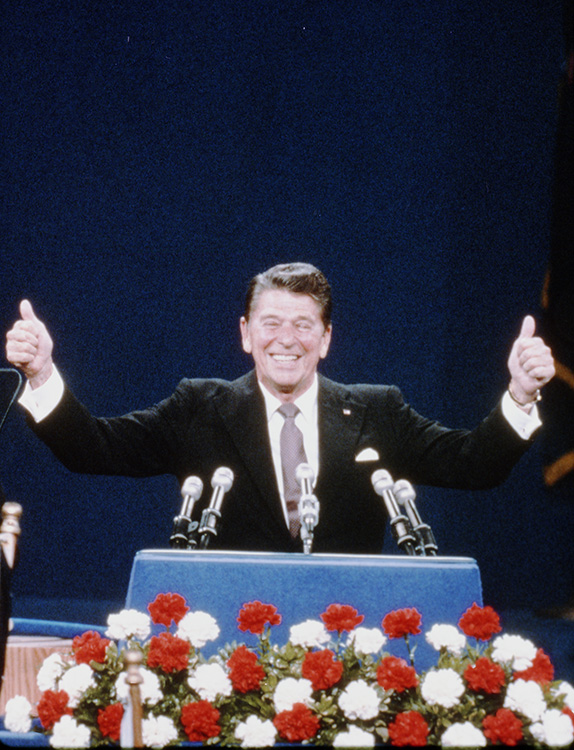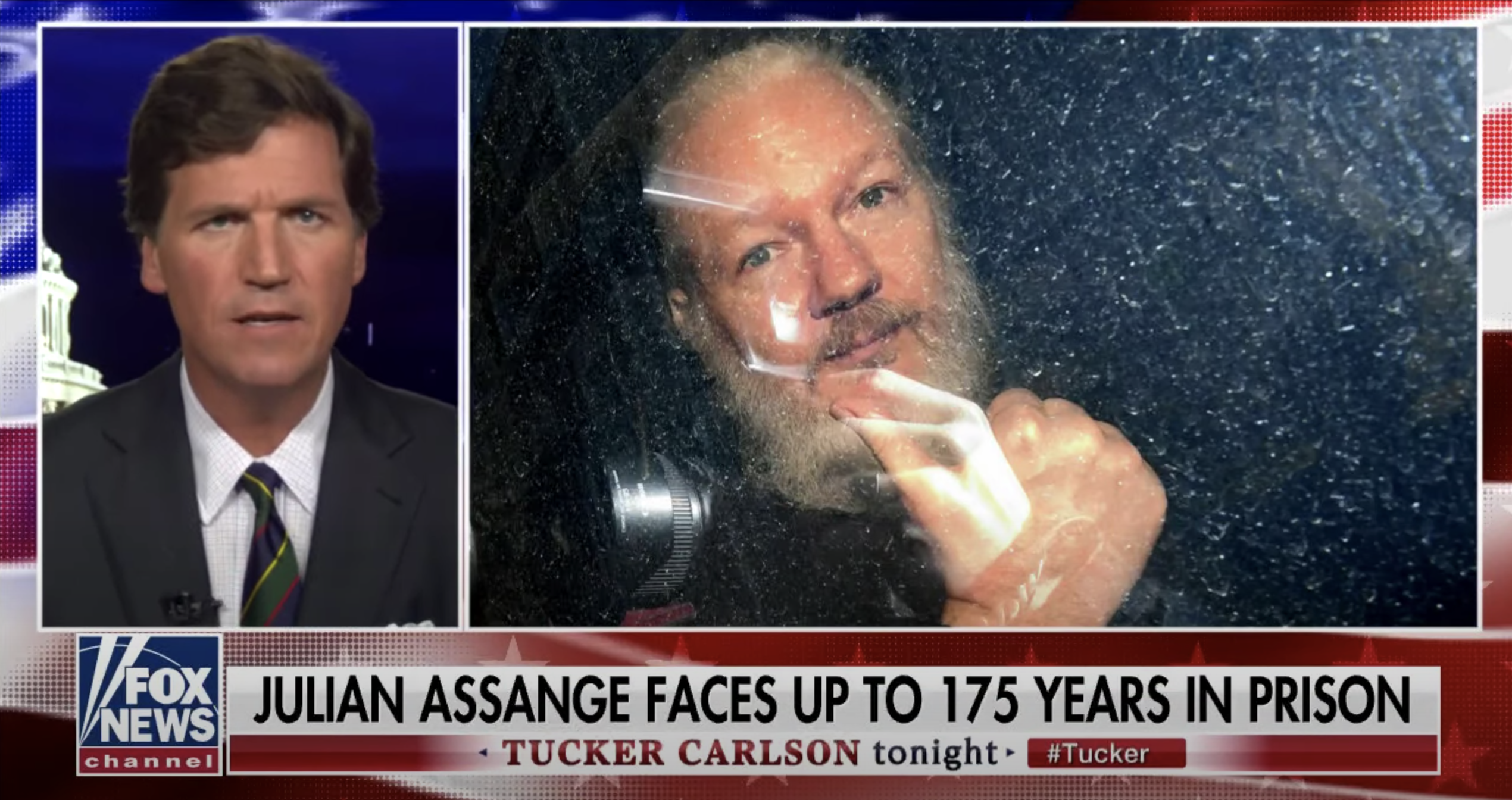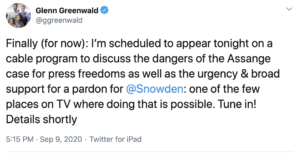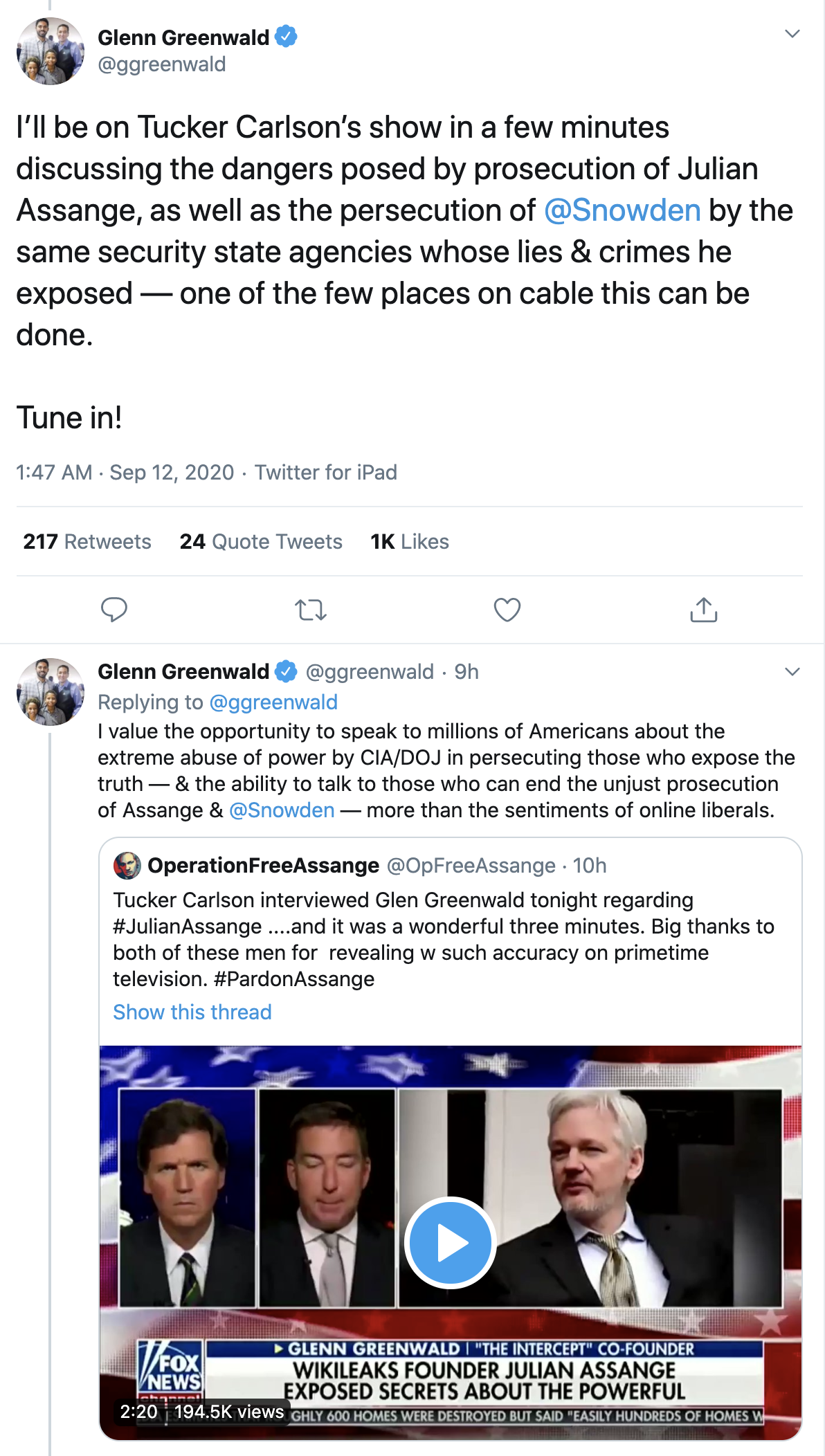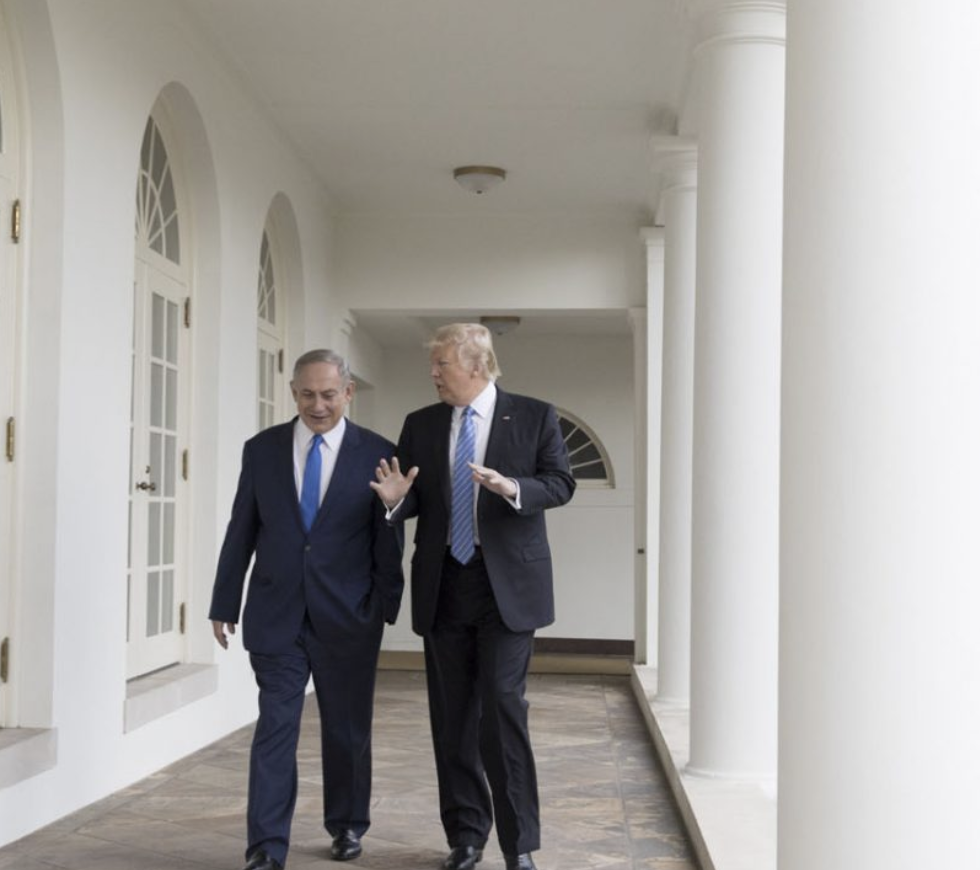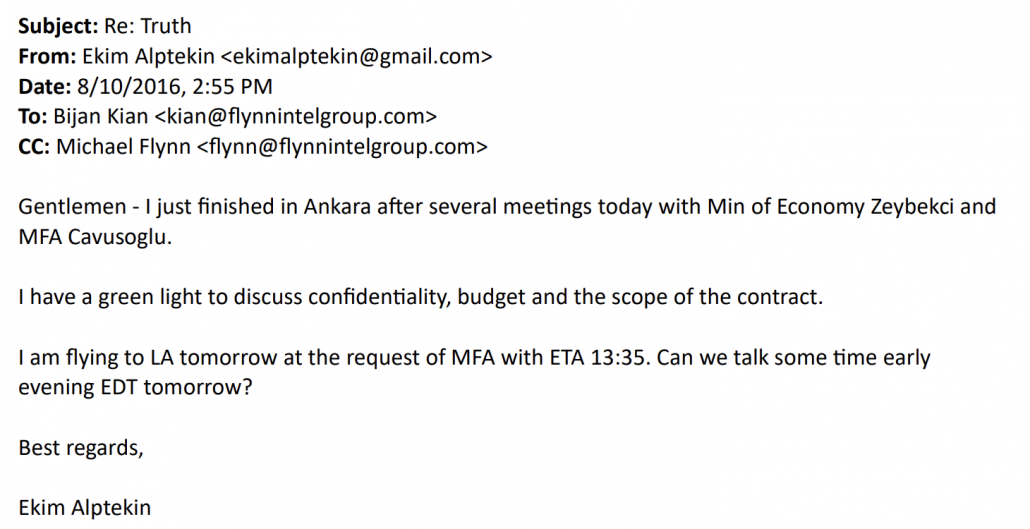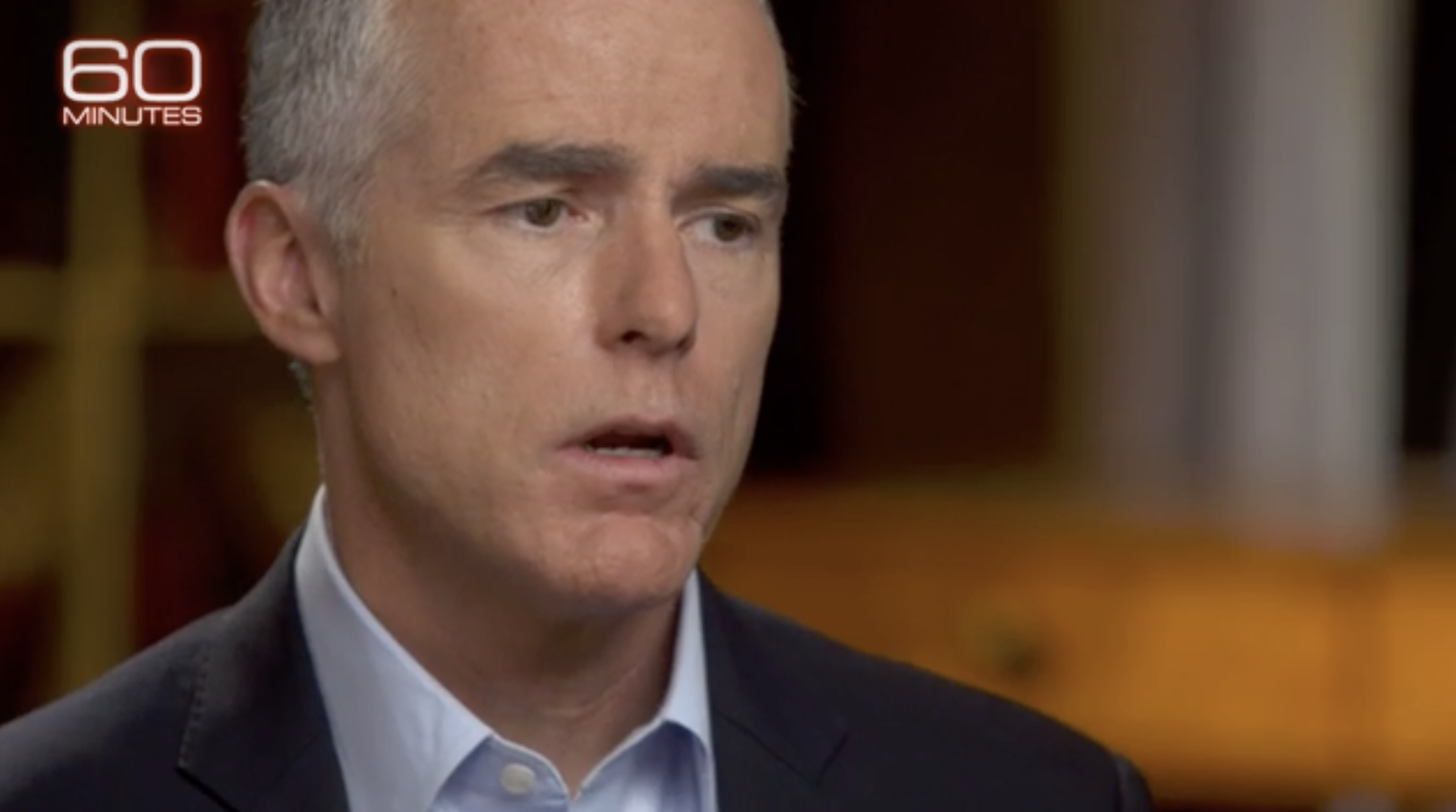Like a child whose mother catches him saying something improper, Trump claimed — in his responses to Robert Mueller — that he was joking when he asked Russia to find Hillary’s missing 30,000 emails (a claim he repeated on March 2).
d. On July 27, 2016, you stated at a press conference: “Russia, if you’re listening, I hope you’re able to find the 30,000 emails that are missing. I think you will probably be rewarded mightily by our press.”
i. Why did you make that request of Russia, as opposed to any other country, entity, or individual?
ii. In advance of making that statement, what discussions, if any, did you have with anyone else about the substance of the statement?
iii. Were you told at any time before or after you made that statement that Russia was attempting to infiltrate or hack computer systems or email accounts of Hillary Clinton or her campaign? If yes, describe who provided this information, when, and what you were told.
Response to Question II, Part (d)
I made the statement quoted in Question II (d) in jest and sarcastically, as was apparent to any objective observer. The context of the statement is evident in the full reading or viewing of the July 27, 2016 press conference, and I refer you to the publicly available transcript and video of that press conference. I do not recall having any discussion about the substance of the statement in advance of the press conference. I do not recall being told during the campaign of any efforts by Russia to infiltrate or hack the computer systems or email accounts of Hillary Clinton or her campaign prior to them becoming the subject of media repo11ing and I have no recollection of any particular conversation in that regard.
Since Trump directed Mueller to a transcript of the press conference, I’ve put excerpts below. They’re a good reminder that at the same press conference where Trump asked Russia to find Hillary’s emails (and in seeming response to which, GRU officers targeted Hillary’s personal office just five hours later), Trump suggested any efforts to build a Trump Tower in Moscow were years in the past, not ongoing. After the press conference, Michael Cohen asked about that false denial, and Trump “told Cohen that Trump Tower Moscow was not a deal yet and said, ‘Why mention it if it is not a deal?'” He also said they’d consider recognizing Russia’s seizure of Crimea, which makes Konstantin Kilimnik’s travel — to Moscow the next day, then to New York for the August 2 meeting at which he and Paul Manafort discussed carving up Ukraine at the same meeting where they discussed how to win Michigan — all the more striking. Trump’s odd answer to whether his campaign “had any conversations with foreign leaders” to “hit the ground running” may reflect Mike Flynn’s meetings with Sergei Kislyak to do just that. In other words, even on top of that request of the Russians for more hacking, that press conference seems to tie to all the other things Trump was trying to hide when he obstructed Mueller’s investigation.
But it’s also worth looking at the abundant evidence that Trump wasn’t joking about his request that Russians find Hillary’s emails, particularly now that, with the superseding Julian Assange indictment, Trump’s DOJ considers the theft of documents in response to someone wishing they’ll be stolen tantamount to complicity in that theft.
Immediately after Trump asked Russia to find Hillary’s emails, the Mueller Report describes, he started asking Mike Flynn to go find them.
After candidate Trump stated on July 27, 2016, that he hoped Russia would “find the 30,000 emails that are missing,” Trump asked individuals affiliated with his Campaign to find the deleted Clinton emails.264 Michael Flynn-who would later serve as National Security Advisor in the Trump Administration- recalled that Trump made this request repeatedly, and Flynn subsequently contacted multiple people in an effort to obtain the emails.265
Heavily redacted passages also tie the request to Roger Stone to find out what WikiLeaks started around the same time.


Earlier the report quotes Gates describing how “frustrated” Trump was that the emails had not been found.
Gates recalled candidate Trump being generally frustrated that the Clinton emails had not been found. 196
A passage describing Trump’s motive for obstructing justice from Volume II refers back to these passages, describing Trump’s awareness of something about the hack-and-leak even while public reports tied the hacks to Russia, and in turn tying that to Roger Stone’s efforts to reach out to WikiLeaks.


Stone’s indictment describes how, days before that press conference, “a senior Trump Campaign official was directed” (probably a reference to Manafort’s request to Gates) to ask him to find out about upcoming releases, which is what led Stone to start pushing Jerome Corsi to find out what was coming.
12. After the July 22, 2016 release of stolen DNC emails by Organization 1, a senior Trump Campaign official was directed to contact STONE about any additional releases and what other damaging information Organization 1 had regarding the Clinton Campaign. STONE thereafter told the Trump Campaign about potential future releases of damaging material by Organization 1.
13. STONE also corresponded with associates about contacting Organization 1 in order to obtain additional emails damaging to the Clinton Campaign.
a. On or about July 25, 2016, STONE sent an email to Person 1 with the subject line, “Get to [the head of Organization 1].” The body of the message read, “Get to [the head of Organization 1] [a]t Ecuadorian Embassy in London and get the pending [Organization 1] emails . . . they deal with Foundation, allegedly.” On or about the same day, Person 1 forwarded STONE’s email to an associate who lived in the United Kingdom and was a supporter of the Trump Campaign.
b. On or about July 31, 2016, STONE emailed Person 1 with the subject line, “Call me MON.” The body of the email read in part that Person 1’s associate in the United Kingdom “should see [the head of Organization 1].”
c. On or about August 2, 2016, Person 1 emailed STONE. Person 1 wrote that he was currently in Europe and planned to return in or around mid-August. Person 1 stated in part, “Word is friend in embassy plans 2 more dumps. One shortly after I’m back. 2nd in Oct. Impact planned to be very damaging.” The phrase “friend in embassy” referred to the head of Organization 1. Person 1 added in the same email, “Time to let more than [the Clinton Campaign chairman] to be exposed as in bed w enemy if they are not ready to drop HRC. That appears to be the game hackers are now about. Would not hurt to start suggesting HRC old, memory bad, has stroke – neither he nor she well. I expect that much of next dump focus, setting stage for Foundation debacle.”
Mike Flynn, Rick Gates, and Paul Manafort all testified how serious Trump was about finding these emails. And while Stone would probably lie about the content of his calls with the candidate, there are two witnesses (Michael Cohen and Gates) to Stone’s calls with him on the topic.
This was Trump’s wish list, just the same as WikiLeaks had a wish list that DOJ is now using to charge Julian Assange with Espionage.
If a wish list is enough to get Assange charged with conspiring to steal the documents on the wish list, then DOJ should treat Trump’s wish list for stolen documents with equal gravity.
Update: Harpie makes a good point in comments. The end of Trump’s “Russia, if you’re listening” comment is “That’ll be next.” That likely means he has already heard from Roger Stone, who had been told by James Rosen on July 25 that the Clinton Foundation emails would be next.
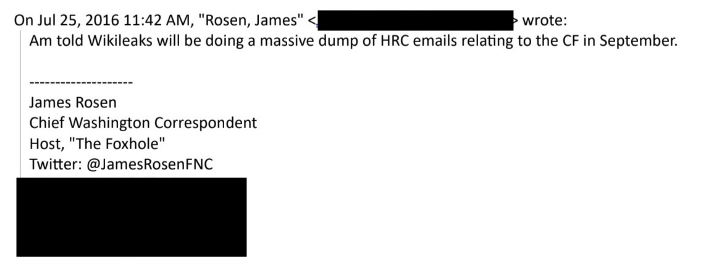
TRUMP: It’s just a total deflection, this whole thing with Russia. In fact, I saw her campaign manager I don’t know his title, Mook. I saw him on television and they asked him about Russia and the hacking.
By the way, they hacked — they probably have her 33,000 e-mails. I hope they do. They probably have her 33,000 e-mails that she lost and deleted because you’d see some beauties there. So let’s see.
But I watched this guy Mook and he talked about we think it was Russia that hacked. Now, first of all was what was said on those that’s so bad but he said I watched it. I think he was live. But he said we think it was Russia that hacked.
[snip]
TRUMP: I’m not going to tell Putin what to do. Why should I tell Putin what to do? He already did something today where he said don’t blame them, essentially, for your incompetence. Let me tell you, it’s not even about Russia or China or whoever it is that’s doing the hacking. It was about the things that were said in those e-mails. They were terrible things, talking about Jewish, talking about race, talking about atheist, trying to pin labels on people — what was said was a disgrace, and it was Debbie Wasserman Schultz, and believe me, as sure as you’re sitting there, Hillary Clinton knew about it. She knew everything.
[snip]
TRUMP: Why do I have to (ph) get involved with Putin? I have nothing to do with Putin. I’ve never spoken to him. I don’t know anything about him other than he will respect me. He doesn’t respect our president. And if it is Russia — which it’s probably not, nobody knows who it is — but if it is Russia, it’s really bad for a different reason, because it shows how little respect they have for our country, when they would hack into a major party and get everything. But it would be interesting to see — I will tell you this — Russia, if you’re listening, I hope you’re able to find the 30,000 e-mails that are missing. I think you will probably be rewarded mightily by our press. Let’s see if that happens. That’ll be next. Yes, sir…
[snip]
TRUMP: No, I have nothing to do with Russia, John (ph). How many times do I have say that? Are you a smart man? I have nothing to with Russia, I have nothing to do with Russia.
And even — for anything. What do I have to do with Russia? You know the closest I came to Russia, I bought a house a number of years ago in Palm Beach, Florida.
Palm Beach is a very expensive place. There was a man who went bankrupt and I bought the house for $40 million and I sold it to a Russian for $100 million including brokerage commissions. So I sold it. So I bought it for 40, I told it for 100 to a Russian. That was a number of years ago. I guess probably I sell condos to Russians, OK?
QUESTION: (OFF-MIKE)
TRUMP: Of course I can. I told you, other than normal stuff — I buy a house if I sold it to a Russian. I have nothing to do with Russia. I said that Putin has much better leadership qualities than Obama, but who doesn’t know that?
[snip]
TRUMP: No, but they seem to be, if it’s Russians. I have no idea. It’s probably not Russia. Nobody knows if it’s Russia. You know the sad thing is? That with the technology and the genius we have in this country, not in government unfortunately, but with the genius we have in government, we don’t even know who took the Democratic National Committee e-mails. We don’t even know who it is.
I heard this morning, one report said they don’t think it’s Russia, they think it might be China. Another report said it might be just a hacker, some guy with a 200 I.Q. that can’t get up in the morning, OK? Nobody knows. Honestly they have no idea if it’s Russia. Might be Russia. But if it’s any foreign country, it shows how little respect they have for the United States. Yes, ma’am.
[snip]
QUESTION: Do you have any pause (ph) about asking a foreign government — Russia, China, anybody — to interfere, to hack into the system of anybody’s in this country…
TRUMP: That’s up to the President. Let the President talk to them. Look, here’s the problem. Here’s the problem, Katy (ph). Katy, here’s the problem, very simple. He has no respect…
QUESTION: (inaudible) 30,000 e-mails…
TRUMP: Well, they probably have them. I’d like to have them released.
QUESTION: Does that not give you pause?
TRUMP: No, it gives me no pause. If they have them, they have them. We might as well — hey, you know what gives me more pause? That a person in our government, crooked Hillary Clinton — here’s what gives me pause. Be quiet. I know you want to save her. That a person in our government, Katy, would delete or get rid of 33,000 e- mails. That gives me a big problem. After she gets a subpoena! She gets subpoenaed, and she gets rid of 33,000 e-mails? That gives me a problem (ph). Now, if Russia or China or any other country has those e-mails, I mean, to be honest with you, I’d love to see them.
[snip]
QUESTION: Did Don Jr. say back in 2008 that there was Russian money pouring into the top organizations…
TRUMP: We wanted to, yeah, I don’t know what he said. But we wanted…
(CROSSTALK)
TRUMP: Excuse me, listen. We wanted to; we were doing Miss Universe 4 or 5 years ago in Russia. It was a tremendous success. Very, very successful. And there were developers in Russia that wanted to put a lot of money into developments in Russia. And they wanted us to do it. But it never worked out.
Frankly I didn’t want to do it for a couple of different reasons. But we had a major developer, particular, but numerous developers that wanted to develop property in Moscow and other places. But we decided not to do it.
[snip]
QUESTION: (inaudible) you are the nominee. Has you or your campaign had any conversations with foreign leaders trying to build up a relationship should you win in November, that you don’t have to hit the ground running (inaudible)?
TRUMP: No, I think we — it’s possible we have. But I’m not — I’m only interested in winning. Once I win, I’ll get along great with foreign leaders, but they won’t be taking advantage. I mean, the problem we have with foreign leaders, whether it’s China, Russia, or anybody, they don’t respect our leadership. And certainly in the case of China, they take tremendous economic advantage of us — tremendous, to a point that is hard to believe.
I’ll get along great with the leadership. And we’ll do well.
Yes, ma’am, in the back?
QUESTION: Mr. Trump, (inaudible)
(CROSSTALK)
TRUMP: No, no. Excuse me. In the back?
QUESTION: I would like to know if you became president, would you recognize (inaudible) Crimea as Russian territory? And also if the U.S. would lift sanctions that are (inaudible)?
TRUMP: We’ll be looking at that. Yeah, we’ll be looking. [my emphasis]

